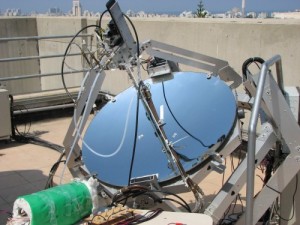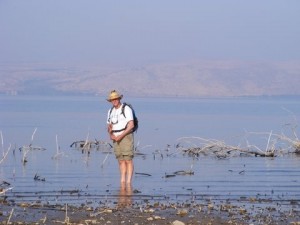Researchers now say in a revealing Nature paper that the most significant health threat from climate change has started to happen.
Crops that provide a large share of the global population with most of their dietary zinc and iron will have significantly reduced concentrations of those nutrients at the elevated levels of atmospheric CO2 anticipated by around 2050, according to research by Israeli scientists published in Nature this month.
Given that an estimated two billion people suffer from zinc and iron deficiencies, resulting in a loss of 63 million life years annually from malnutrition, the reduction in these nutrients represents the most significant health threat ever shown to be associated with climate change, they report.
Humanity is conducting a global experiment by rapidly altering the environmental conditions on the only habitable planet we know. As this experiment unfolds, there will undoubtedly be many surprises. Finding out that rising CO2 threatens human nutrition is one such surprise.
Some previous studies of crops grown in greenhouses and chambers at elevated CO2 had found nutrient reductions, but those studies were criticized for using artificial growing conditions. Experiments using free air carbon dioxide enrichment (FACE) technology have subsequently become the gold standard as FACE allows plants to be grown in open fields at elevated levels of CO2. However, even prior studies using FACE had small sample sizes and have been inconclusive.
Itai Kloog from Ben Gurion University in Israel analyzed data involving 41 cultivars (genotypes) of grains and legumes from the C3 and C4 functional groups (plants that use C3 and C4 carbon fixation) from seven different FACE locations in Japan, Australia, and the United States.
The level of CO2 across all seven sites was in the range of 546-586 parts per million (ppm). They tested the nutrient concentrations of the edible portions of wheat and rice (C3 grains), maize and sorghum (C4 grains) and soybeans and field peas (C3 legumes).
The results showed a significant decrease in the concentrations of zinc, iron, and protein in C3 grains. For example, zinc, iron, and protein concentrations in wheat grains grown at the FACE sites were reduced by 9.3%, 5.1%, and 6.3% respectively, compared with wheat grown at ambient CO2. Zinc and iron were also significantly reduced in legumes; protein was not.
The finding that C3 grains and legumes lost iron and zinc at elevated CO2 is significant. It is estimated that 2 to 3 billion people around the world receive 70% or more of their dietary zinc and/or iron from C3 crops, particularly in the developing world, where zinc and iron deficiency is already a major health concern.
Another interesting finding was that zinc and iron varied substantially across cultivars of rice. That finding suggests that there could be an opportunity to breed reduced sensitivity to the effect of elevated CO2 into crop cultivars in the future.
Image of empty plate from Shutterstock





looks like a bigger study shows that iron, zinc and protein are not the whole story, many more nutrients decline:
http://elifesciences.org/content/3/e02245
Unless safe recycling and family planning are spread into every nation very soon, there will be no human society by 2050.
“Plants need water, but is a flood a good way to water your crops? Too much carbon dioxide is bad news.” http://clmtr.lt/c/HL70BaV0cMJ